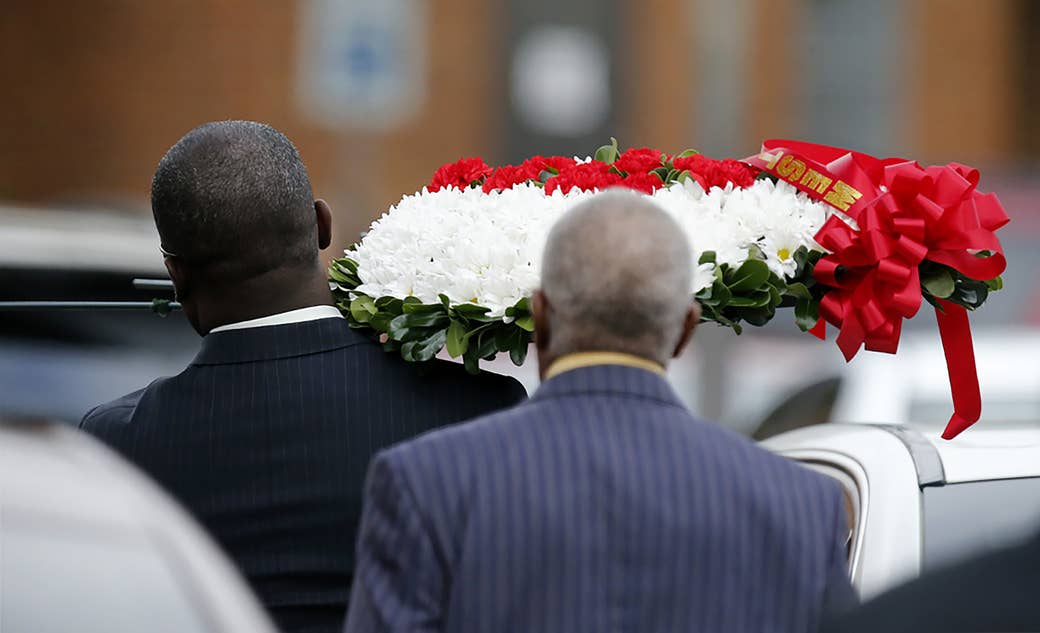
There is a somewhat perverse feeling of hope that comes over me in the moments after a police officer kills an unarmed black person — the idea that this will be the time the police officer finally faces justice, despite how rare that has proven to be. Such emotions can be volatile, flitting between anger, sadness, fear, and anxiety, as I anticipate an acquittal for the killer, but also hope against that anticipation. When the details behind the killing of Philando Castile began to unfold in the summer of 2016 — complete with video and audio transcripts of officer Jeronimo Yanez’s frantic interaction with Castile before the shooting, it seemed as though he would surely be convicted on the charge of manslaughter. In the audio, Yanez shouts confusing and conflicting demands at Castile after Castile informs him that he has a weapon on his person that he is legally allowed to carry. In the midst of all the righteous anger about Castile’s killing, I remember feeling an undercurrent of hope in the idea that at least there would be some measure of justice, despite all past evidence to the contrary. There had to be, I told people. This one was too obvious.
Of course, shortly after the trial began, local news reported that there was a jar of marijuana found in Castile’s car after he was killed. The vehicle was taken and searched by police, and the presence of the marijuana called Castile’s character into question, with the officer stating that the very smell of the drug made him feel that he was in danger. Yanez was eventually acquitted of all the charges he faced.

The police shooting that took place in Dallas earlier this month is one of the most baffling and infuriating in a history of baffling and infuriating police shootings. The story, as it was first presented: Amber Guyger walked into an apartment that she believed to be her own, though it was actually the apartment of Botham Shem Jean, a 26-year-old black man. Guyger then shot and killed Jean. There have been more questions than answers in regard to the shooting, the obvious and most primary questions revolving around the “how” of the situation, and the almost incredulous nature of it. Jean was not suspected of any crime, and was minding his business in his own home. Guyger was just off duty, and she claims she returned to her apartment building and got off on the wrong floor. She said she saw a silhouette of a person in the dark of the apartment, shot him, and then turned on the lights and saw the error she had made. There are discrepancies about what actually took place: The initial story, which appeared on the first warrant issued and was signed by a judge on Sept. 7, said that Guyger attempted to open the door with her key when Jean opened the door, an interaction occurred (a neighbor stated that he heard an exchange of words), and Guyger shot Jean. But a Sept. 9 affidavit suggests something different — that Guyger went to open the door with an electric key, but the door was slightly ajar, which allowed Guyger to push it open and see the silhouette of Jean inside of the apartment before she shot him. There are witnesses who heard Guyger knock on the door before the shooting and yell, “Let me in.”
In every telling, the fact remains that Guyger entered an apartment that wasn’t her own, and shot the occupant of that apartment, who was not armed nor a direct threat to her.
After enduring news cycles like this one for so long, some of us are far keener to the way the media reports these stories. Once the initial facts were out, the media machine began to turn, building a language and narrative that, by default, took the side of the police. Stories began to circulate about Guyger giving Jean “verbal commands,” with the reports stating that Jean ignored said commands before he was shot. Those reports seemed, to me, like an attempt to drive home a narrative of someone who died due to their own disobedience. The story began to take shape as if Guyger were an on-duty officer responding to a call, instead of what she was: an armed home intruder. The media was adjusting the lens on the story to mention ignored verbal commands, as if one must respond to verbal commands when a stranger is in one’s apartment.
And then, marijuana again. On Sept. 13, Fox 4 News out of North Texas shared a story about marijuana being found in Jean’s apartment, which had turned up after a search warrant was issued. The news story itself was about the disgust of Jean’s lawyers and family with the warrant and its findings being announced, but the language in the tweet simply presented the information about marijuana being found in his apartment. The tweet was widely circulated and criticized, its aims clear.
I don’t know what impact this messaging will have on Guyger’s case when it gets underway, but I do know that this playbook is followed strictly and deliberately. When the press uses language and messaging to favor police officers — by mentioning how they weren’t obeyed, or by turning a focus to what was in the home or in the cars of the people they killed — it slowly builds a public image and perception of these events, in a society where police are already given preferential treatment and the benefit of the doubt. The only thing in Botham Shem Jean’s apartment that matters is Amber Guyger. The further the discussion moves away from the fact that an intruder killed a man in his apartment, the further the case’s narrative moves away from the fact of that killing, and more toward the conflicting stories that arrived in the killing’s wake. There are those people who know and see this playbook as obvious, but there are many more people who are neutral, or casual observers and consumers of news. These people cobble together tweets and headlines to make their judgments, and for them, they might see that there was a shooting because a man in possession of marijuana didn’t follow police orders.
There is no end to this brand of exhaustion. For those who have seen this play out before — particularly black people — the same concerns continue to resonate. There are crimes against the body, and then there are crimes against the body at rest. What we are seeing, again, is an attempt to write Botham Shem Jean into the way of a justified bullet. Whether it will work remains to be seen, but for his family and those who were close to him, the damage has already been done. Death at the hands of the police is just the start of a machine meant to keep officers from being held accountable for their actions. Amber Guyger walked into an unarmed man’s apartment and shot him dead, and so it would seem that the machine is going to have to work overtime. The Dallas Police Department announced that Guyger was fired yesterday, nearly three weeks after the murder of Jean. But that firing alone doesn’t change the trajectory of the case, or the motives of the people behind the case. Though Guyger is no longer an employee of the system, she is still representative of it, as long as she was a police officer when the murder occured. With that in mind, I am more confident in the machine’s ability to do its job than I am in Amber Guyger facing any criminal consequences. ●
Hanif Abdurraqib is a poet, essayist, and cultural critic from Columbus, Ohio. His first collection of poems, The Crown Ain't Worth Much was released in 2016 and was nominated for the Hurston-Wright Legacy Award. His first collection of essays, They Can't Kill Us Until They Kill Us, was released in fall 2017 by Two Dollar Radio.
